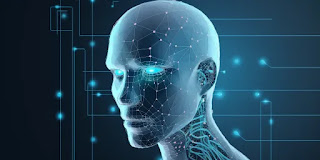AI
AI (Artificial Intelligence)
AI (Artificial Intelligence) refers to the development of computer systems that can perform tasks that typically require human intelligence, such as:
1. Learning
2. Problem-solving
3. Reasoning
4. Perception
5. Language understanding
AI systems use algorithms and data to make decisions, often independently, and can improve their performance over time through machine learning.
Types of AI:
1. Narrow or Weak AI (e.g., Siri, Alexa): Designed to perform a specific task.
2. General or Strong AI (hypothetical): Aims to match human intelligence and capabilities.
3. Superintelligence (hypothetical): Significantly surpasses human intelligence.
AI applications:
1. Natural Language Processing (NLP)
2. Computer Vision
3. Robotics
4. Expert Systems
5. Predictive Analytics
AI has numerous benefits, including:
1. Automation
2. Efficiency
3. Accuracy
4. Enhanced decision-making
5. Improved customer experiences
However, AI also raises ethical and societal concerns, such as:
1. Job displacement
2. Bias
3. Privacy
4. Transparency
5. Accountability
The development and use of AI requires a balanced approach, considering both the benefits and the challenges
Does AI become threat to human ?
AI has the potential to pose significant risks and challenges to humanity, but whether it becomes a threat depends on how we design, use, and manage AI systems. Some concerns include:
- Job displacement
- Bias and discrimination
- Autonomous weapons
- Surveillance and privacy invasion
- Unintended consequences from superintelligent AI
However, AI also offers numerous benefits, such as:
- Improved healthcare
- Enhanced productivity
- Assisted decision-making
- Environmental sustainability
- Scientific breakthroughs
To mitigate risks, experts emphasize the importance of:
- Responsible AI development
- Ethical guidelines
- Regulatory frameworks
- Transparency and accountability
- Human-AI collaboration
By acknowledging the potential risks and benefits, we can work towards developing AI that complements and enhances human life, rather than becoming a threat.
How to defeat AI
Defeating AI depends on the context and type of AI. Since AI systems are designed to perform specific tasks, "defeating" them could mean:
- Outsmarting them in a game or competition
- Finding ways to overcome their limitations or biases
- Developing new techniques to surpass their capabilities
However, AI is constantly evolving, so it's essential to stay up-to-date with the latest developments and advancements.



Comments
Post a Comment